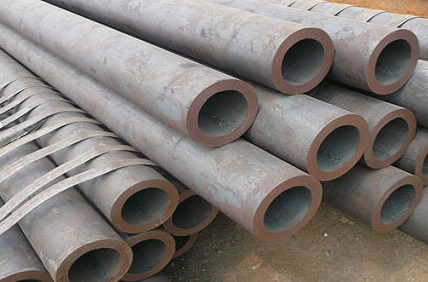Introduction
Alloy 20 is one of the “Super” stainless steels with the highest acid attack resistance. The presence of nickel, chromium, molybdenum, and copper increases the material’s resistance to chloride stress corrosion, which can lead to cracking and general pitting. Columbium is added to the alloy to prevent carbide precipitation during welding.
It is simple to manufacture and possesses robust mechanical properties. Although the alloy was designed for use in industries involving sulfuric acid, it is most commonly used in the chemical processing industry. In addition, pharmaceuticals, meats, oils, plastics, explosives, and synthetic fibers are utilized in manufacturing.
This superior alloy is also required for high-temperature exchangers, combining tanks, metal cleaning, pickling equipment, and pipe construction. Compared to higher nickel-based alloys, Alloy 20 Pipe may reduce production costs for standard stainless steel.
What distinguishing qualities do Alloy 20 pipes have?
You should be aware of the fact that pipes made from alloy 20 possess a number of exemplary qualities. These is what they consist of:
They are more resistant to stress-corrosion cracking in sulfuric acid (20–40%) at boiling temperatures.
The corrosion resistance of Alloy 20 pipes to sulfuric acid and chloride stress corrosion cracking is exceptional.
In addition, they have superior fabricability, mechanical properties, and low carbide precipitation during welding.
What is the use of Alloy 20 Pipes?
Common applications for Alloy 20 pipes include pickling racks, tanks, valves, SO2 scrubbers, food and dye production, chemical and related industries, heat exchangers, and other harsh environments.
Numerous industrial applications, such as food production, construction, chemistry, petrochemistry, pharmaceuticals, oil exploration, power generation, pulp, and paper industries, condensers, and heat exchangers, use alloy 20 pipes.
Alloy 20 pipes are utilized in numerous industries, including chemical manufacturing, petrochemical and refining, maritime, pharmaceutical, and food processing. Storage tanks, mixing tanks, agitators, pump and valve modules, food processing machinery, fasteners, and fittings are examples of end-use applications. Applications are limited to a maximum temperature of 1000 degrees Fahrenheit per ASME. It is essential to determine whether the required corrosion resistance can be achieved in the present environment.
Read More :
The Applications and Benefits of Using Stainless Steel 310 Pipes: Austenitic stainless steel in Grade 310 has outstanding high-temperature characteristics in addition to having strong ductility and weldability.
What is Scheduled 40 Steel Pipe?: The most common pipe schedule is Schedule 40 steel pipe. It can be galvanized but isn’t required, and it’s commonly used in water and gas lines. It can also show up in spots that require decoration or support.

